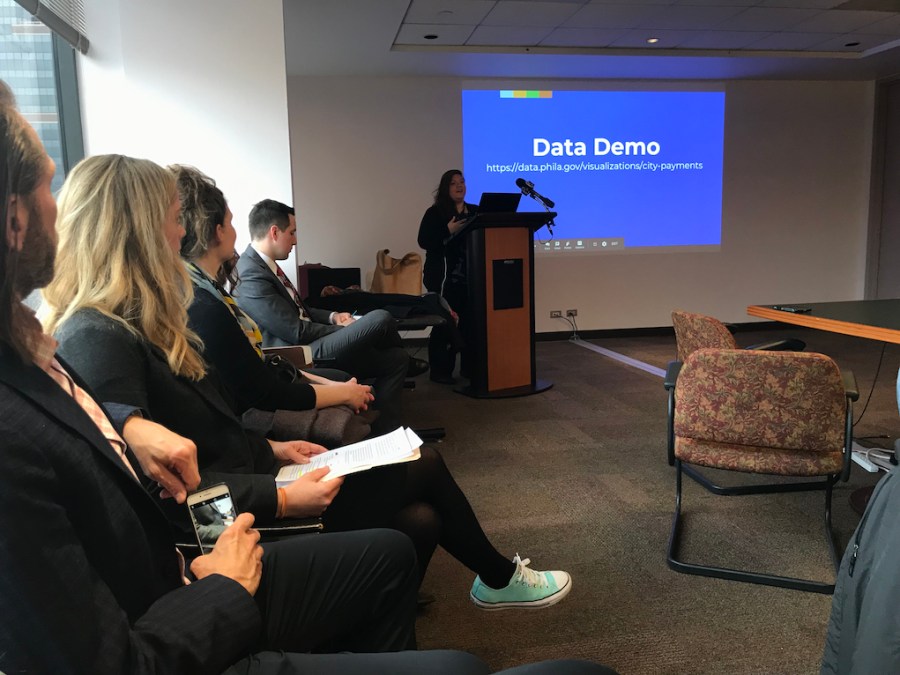Philadelphia releases ‘landmark’ dataset of city payments

Officials in Philadelphia on Friday published data related to more than $4 billion in payments the city made during the 2017 fiscal year, a release that Mayor Jim Kenney credited to a “herculean” effort by municipal agencies.
The data collection, which runs nearly a quarter-million lines, is comprised of the payment data from nearly 60 city agencies collected from July 2016 to June 2017. The data, housed at opendataphilly.org, are presented in two sets: an aggregated table that shows the totals for 2,939 groups of payments, and a detailed table featuring individual payments. (Some payments, totaling about $100 million, were omitted due to legal or security concerns, Philadelphia officials said.)
While the city has released salary and budget data before, this is its first breakdown of individual departments’ financial activity.
That detailed data table also includes context for each type of payment, including the date, vendor name, paying department, and one of 14 prefixes that tell users what kind of payment it was, such as an employee reimbursement or purchase of new library books.
The Open Data Census, a collaboration between the pro-transparency groups Sunlight Foundation and Open Knowledge International, lists payments as one of the most important types of data for a city to publicize. With Philadelphia’s release Friday, people can now view how much the city’s water department spent on real estate ($210 million), how much the Office of Behavioral Health spent ($1.1 billion), or how much of the city’s total expenditures were used to purchase services ($2.8 billion, about two-thirds of its overall spending).
“Every tax dollar that the city spends is important, and residents will now be able to see payments in a level of detail that has never before been readily available,” Kenney said in a release.
Philadelphia Chief Information Officer Mark Wheeler said the data’s publication was the culmination of a yearlong citywide endeavor led by the city’s finance, law and IT departments.
“[Philadelphia’s] payment systems were never designed to be released to the public,” Wheeler said.
Wheeler said that the city would have liked to use fiscal 2018 data for the initial data release, but that working through the difficulties of using the 2017 data has better prepared it for future releases.






